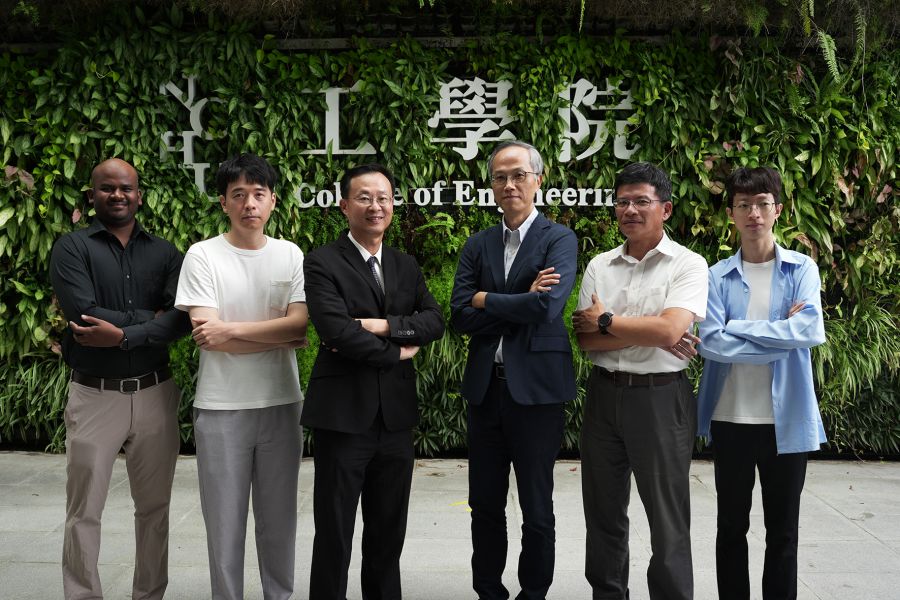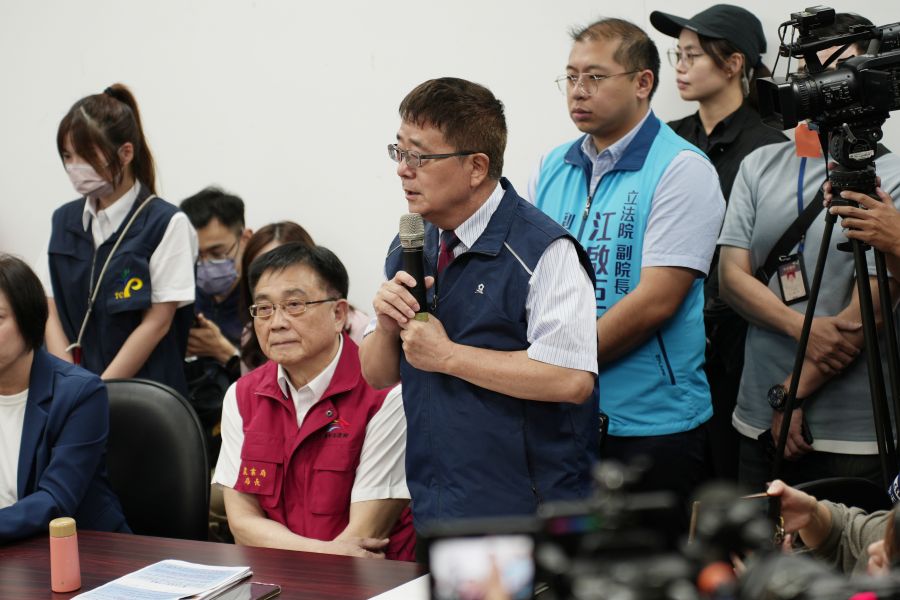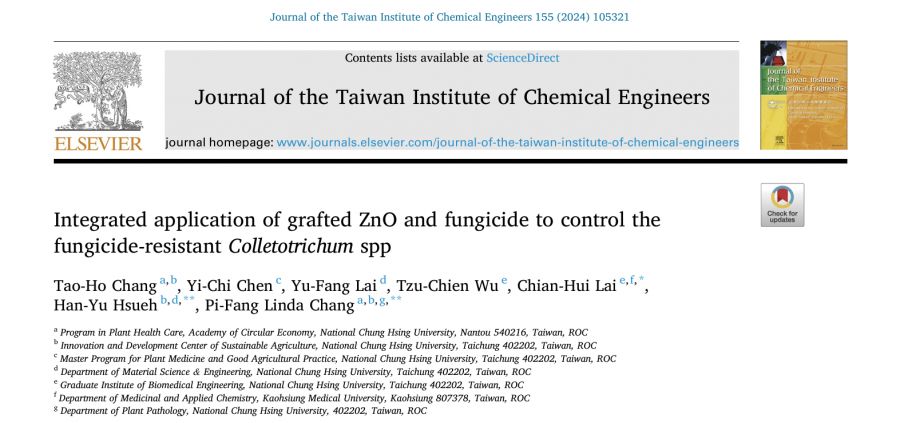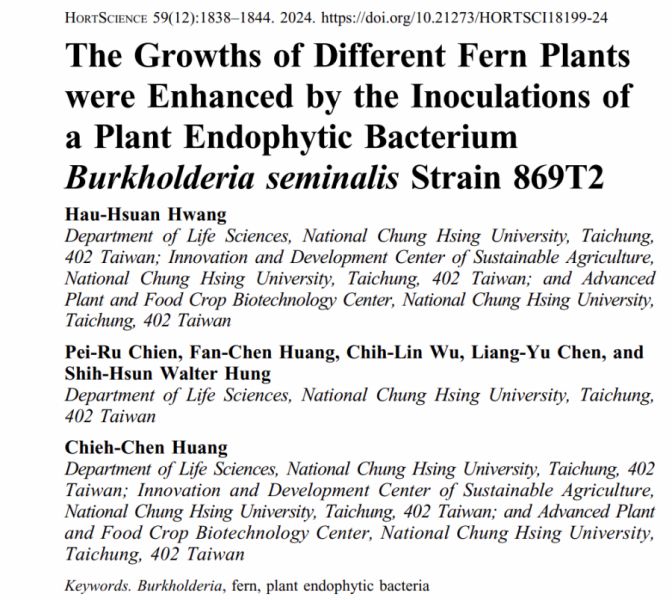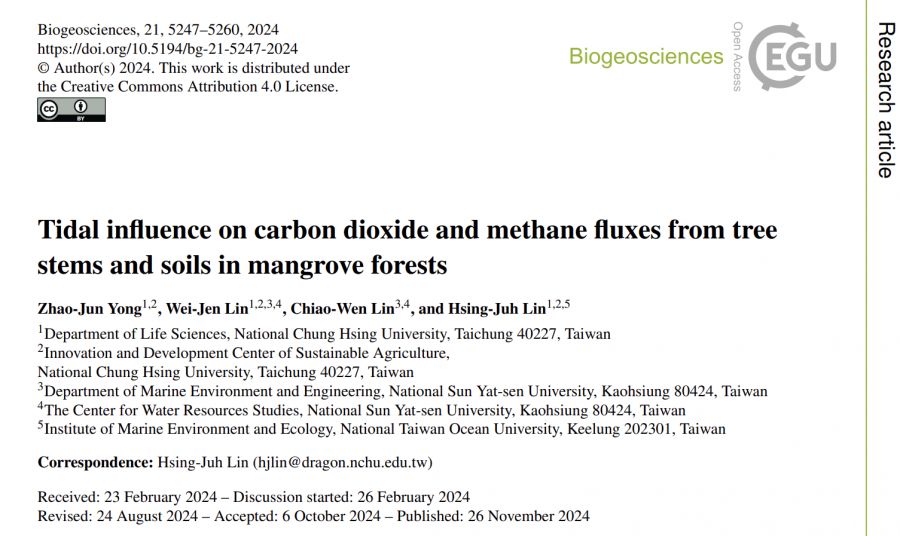




Probiotic Microbiomes For Agriculture Safety And Green Gold Creation
May 15,2021/Taiwan Research Highlight/Tzu-Pi Huang黃姿碧
The gut microbiome can not only boost human immunity, but also protect the health of crops, livestock, fishes and shrimps. Recently, a transdisciplinary team from the Department of Plant Pathology, the Pesticide Residue Analysis Center at National Chung Hsing University and the Agricultural Technology Research Institute has aimed to investigate and discover the multi-industry application potential of three probiotics. They found three Bacilli which are internationally recognized as safe, namely Bacillus subtilis, Bacillus licheniformis, and Bacillus coagulans; they could not only promote the growth of various crops, but also suppress crop diseases and degrade the pesticides which may reside in the compost. Their application could ensure that the compost made of agricultural waste is safer to use. In addition, B. subtilis and B. licheniformis as feed additives for swine and fishes increase the quality of animal products and improve the environment. They have also been shown to increase the beneficial gut microbes of pigs and fishes. To provide a solution for breaking through the bottleneck of mass production of probiotic products in the industry, the research team has also established a standard protocol of the fermentation and formulation technology using the pilot plant and industrial scale facilities. This will help manufacturers quickly adapt the technology, and will accelerate industrialization. The application of beneficial bacteria is effectively able to reduce the use of chemical pesticides and antibiotics, which can in turn ensure food safety, and a balanced and sustainable environment.
Microbiomes are referred to as microbial communities associated with environments consisting of humans, animals, plants, and their environments. Recent research data have suggested that 90% of human diseases are closely related to the gut microbiome. Thus, the study addressing human microbiomes is considered as a key player in “precision medicine.” Probiotics such as lactobacillus and natto bacteria (also known as Bacillus subtilis) could maintain and promote the balance of gastrointestinal microbial communities, promote human and animal intestinal health, inhibit the growth of pathogens, strengthen the immune system, and improve the efficiency of nutrient absorption and utilization. Since probiotics can also promote the absorption and utilization of plant nutrition, enhance crop growth and yield, and protect plants from pests and diseases. They are often developed as biofertilizers, biostimulants or biopesticides for protecting plant heath. In addition, probiotics are safer for humans, animals, and the environment than chemical agents and antibiotics, have multiple effects, and can reduce the chemical resistance of pathogens; thus, they can be used as an alternative for the antibiotic-free raising of livestock and aquaculture.
The transdisciplinary team from the Department of Plant Pathology, the Pesticide Residue Analysis Center at National Chung Hsing University, and the Agricultural Technology Research Institute jointly discovered three probiotics and proved that they have great application potential in crop health care, circular agriculture, livestock and aquaculture. The three probiotics can be developed into microbial products for use in agriculture, and can expand the use in multiple industries (Fig. 1). The team's research has provided evidence that B. subtilis andBacillus licheniformis promote the growth, yield and quality of a variety of plants and so can be used as a microbial fertilizer; they also protect plants from disease infections and so can be used as a microbial pesticide. The next-generation sequence analysis of the composition of microbial communities in the environment indicated that the application of B. subtilis to crops reduces the pathogenic Fusarium and Penicillium, and increases the numbers of beneficial bacteria such as Bacilli and lactic acid bacteria and Trichoderma. In addition, the team also found that these two beneficial bacteria have activity in the degradation of the insecticides malathion and deltamethrin and the fungicide tricyclazole. Because such chemical pesticides often reside in agricultural waste, if not treated for use as compost, they may raise safety concerns. Fortunately, the team found that the beneficial bacteria they developed can degrade pesticide residues in agricultural waste, which could ensure safer recycling of agricultural waste materials. In addition, the team's research results found that the application of B. subtilis improved the efficiency of raising piglets and pigs, and reduced the order content - hydrogen sulfide and thiol in the feces, which can improve the swine raising environment. It also reduced the number of Escherichia coli bacteria. B. subtilis and B. licheniformis can improve the size of fishes, improve fillet recovery, and enhance feed efficiency. They can effectively inhibit intestinal pathogens, and reduce the occurrence of fish diseases. They also have the effect of improving the water quality of aquaculture farms, and modulate the diversity of macroalgae, the fish food sources, in the farming water, and change the microbial compositions of fish intestines. In conclusion, the probiotic products developed by the team not only have multiple functions, but can also be applied to the agriculture, livestock and aquaculture industries which can greatly enhance agricultural output value and market competitiveness, and ensure food safety and environmental sustainability (Fig. 2).
Fig. 1 The transdisciplinary team from the Department of Plant Pathology, the Pesticide Residue Analysis Center at National Chung Hsing University, and the Agricultural Technology Research Institute jointly discover multi-industries application potential

Fig.2. Multi-industry applications of Bacillus subtilis and Bacillus licheniformis based on probiotic products. The probiotic products can be used in crop health care, and in the livestock and aquaculture industries. B. subtilis can protect the wax apple
Repost Link: https://www2.nchu.edu.tw/en-news-detail/id/376



